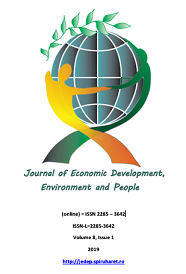Determination of Financial Literacy Level: A Study on Hitit University Faculty of Economics and Administrative Sciences Students
Determination of Financial Literacy Level: A Study on Hitit University Faculty of Economics and Administrative Sciences Students
Author(s): Selçuk Kendirli, Muhammet Selcuk Kaya, Aykut İsleyenSubject(s): Business Economy / Management, Higher Education , Financial Markets, Public Finances
Published by: Editura Fundaţiei România de Mâine
Keywords: Financial Literacy; Personal Finance; Finance Education;
Summary/Abstract: Financial literacy is the level of financial knowledge, attitude and behavior that enables individuals to manage their income, expenses and assets in a way that does not cause financial problems both today and in the future. As individuals' financial literacy levels increase, unnecessary consumption and waste of resources will decrease and the efficiency of investments will increase. Increasing the level of financial literacy will ensure a more balanced formation of asset prices in financial markets and prevent the formation of price bubbles in the markets. Today, financial markets around the world are almost integrated, financial transactions have become possible quickly through portable electronic devices. In this environment, the difference in welfare between individuals and societies with financial literacy and individuals and societies without financial literacy has increased more than in any other period in history. This study, it is aimed to measure the financial literacy level of the students of Hitit University Faculty of Economics and Administrative Sciences located in the province of Çorum. The data of the study were obtained from a questionnaire with the participation of 400 students studying in 5 different departments. By using the percentages of the correct answers given to the questions, success scores were created based on departments. With the help of the T-test and ANOVA tests, the relationship between students' financial literacy and whether they use department, gender, class, and credit card was determined. As a result of the study, it was determined that there are significant relationships between the departments and classes in which students study and their financial literacy, and no significant relationships were found between their credit card and internet banking usage and gender and financial literacy.
Journal: Journal of Economic Development, Environment and People
- Issue Year: 10/2021
- Issue No: 4
- Page Range: 29-41
- Page Count: 13
- Language: English

